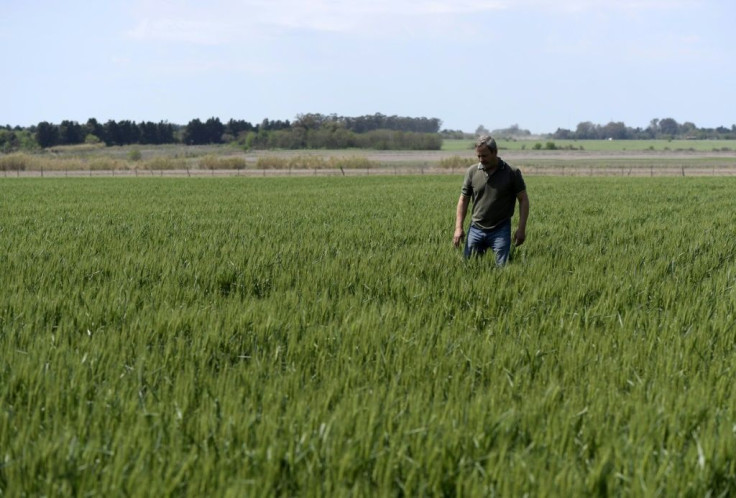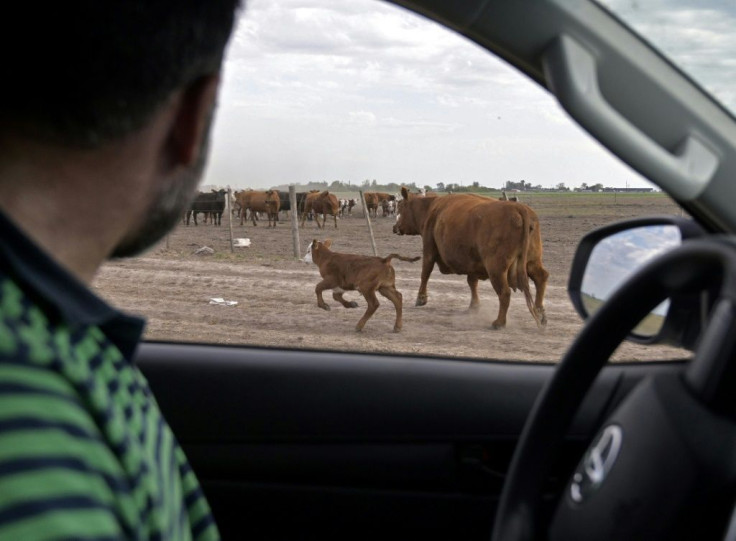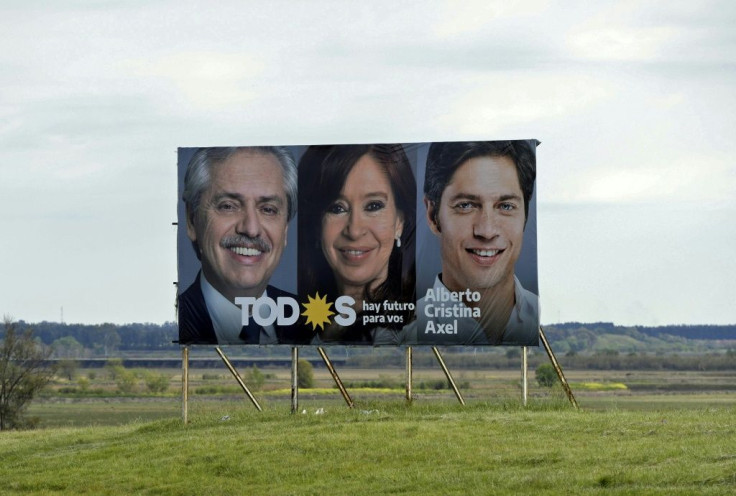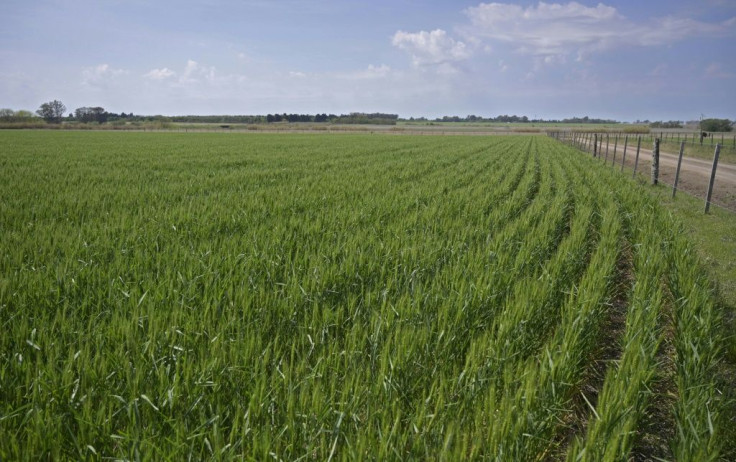Farmers Fear Leftist Return In Argentina

Record grain harvests were a much needed boon to Argentine agribusiness this year, but farmers here see trouble ahead if leftist Peronist candidate Alberto Fernandez wins Sunday's presidential election.
"They're coming for us," Deniel Perez says darkly as he gazes across a vast expanse of grain fields in Ramallo, the lush agricultural heartland of Buenos Aires province.
Peronists "will come for us in the countryside for sure," said Perez, "because it's the only real money they can call on" to help lift Argentina out of crisis -- particularly its growing number of urban poor.
Farmers like Perez found an ally in President Mauricio Macri when he scrapped taxes on exports of corn and wheat following his election in 2015.
Now they are bracing for a backlash from Fernandez and his running mate, former president Cristina Kirchner, should the Peronist duo seal an anticipated return to power.
Perez, 42, has grown disillusioned with Macri after the economic turmoil of the last two years that has seen millions of Argentines hit by soaring inflation and a plummeting peso.
Devil you know
But better the devil you know than the devil you don't, he says, and his fears over what Peronsim can do to farming are worse than four more years of Macri.
With bumper exports of soybean oil and soybean flour, agriculture is one of Argentina's few success stories in an economy beset by crisis since early 2018.

The sector showed year-on-year growth of 46 percent to July, according to the National Institute of Statistics, after rebounding from one of the worst droughts in years.
But Perez and other grain producers need no reminding of the restrictions levied by Kirchner in 2008 that led to months of farmer protests.
Farmers accused Kirchner of saddling the agricultural industry with an unfair share of the national tax burden, hurting their international competitiveness.
She said then that taxes proposed on soybean exports were aimed at redistributing farming wealth to projects for the poor.

Now they fear a return of such interventionism against an industry which accounts for 6.1 percent of GDP.
Export earner
Argentina's agricultural exports bring in more than half of the country's export dollars
And the agribusiness sector, a major foreign currency earner, doesn't want to be the well that the left will dip into again.
Daniel Pelegrina, president of the Rural Society of Argentina, says the left should have other priorities.

"Argentina produces more than it consumes, we need to keep our horizons open" for trade, he said.
"We need stability in the economy, to revive the currency and end inflation."
Fernandez, the election favorite, has assured farmers what happened in 2008 is "all in the past." He had an insider's view of the showdown, having been Kirchner's cabinet chief.
Fernandez has promised he will continue with tax relief on production, but Pelegrina is dubious.
"We have doubts because, in his camp, is Cristina, who had a very strong animosity towards the countryside."
'Terrible unknown'
Juan Ouwerkerk, president of Alfa, a farmers' cooperative in southern Buenos Aires province, is taking for granted the likelihood of a Fernandez triumph in the elections, which he said represents "a terrible unknown" for farmers.
"We hope it won't mean a return to the policy of Cristina Kirchner's second term, and if retentions are excessive, it will become impossible," he said.
A recent survey of agricultural producers showed nearly 68 percent fear a hike in taxes should the left return to power, and 50 percent say they will have to review their investment plans.
Macri, in addition to lowering taxes, boosted exports of Argentine wheat and corn and beef exports to China.
The agricultural area given over to wheat has doubled in size from three million to more than six million hectares.
But costs to producers, mostly tied to the dollar, have skyrocketed, with freight costs, seeds, fertilizers, machinery and vehicles all costing more. "All costs are subject to inflation," said Perez.
Like many other producers in Argentina's "breadbasket" land in Buenos Aires province, Perez fears Fernandez will boost the foreign exchange market.
"If that happens, I'm lost because my cereal is going to be at one exchange rate and my costs pinned to another."
Across the lush farmland owned by Daniel Berdini, another Ramallo producer, the corn appears in the furrows, the wheat crop is looking healthy and soybean seeds are ready to be sown.
All is well with the world down on his farm, for now. But for Bertini it could be the calm before the storm.
He warns the likely new government that farmers are unlikely to take any taxes lying down: "If they come for us, we'll raise hell."
© Copyright AFP 2024. All rights reserved.











